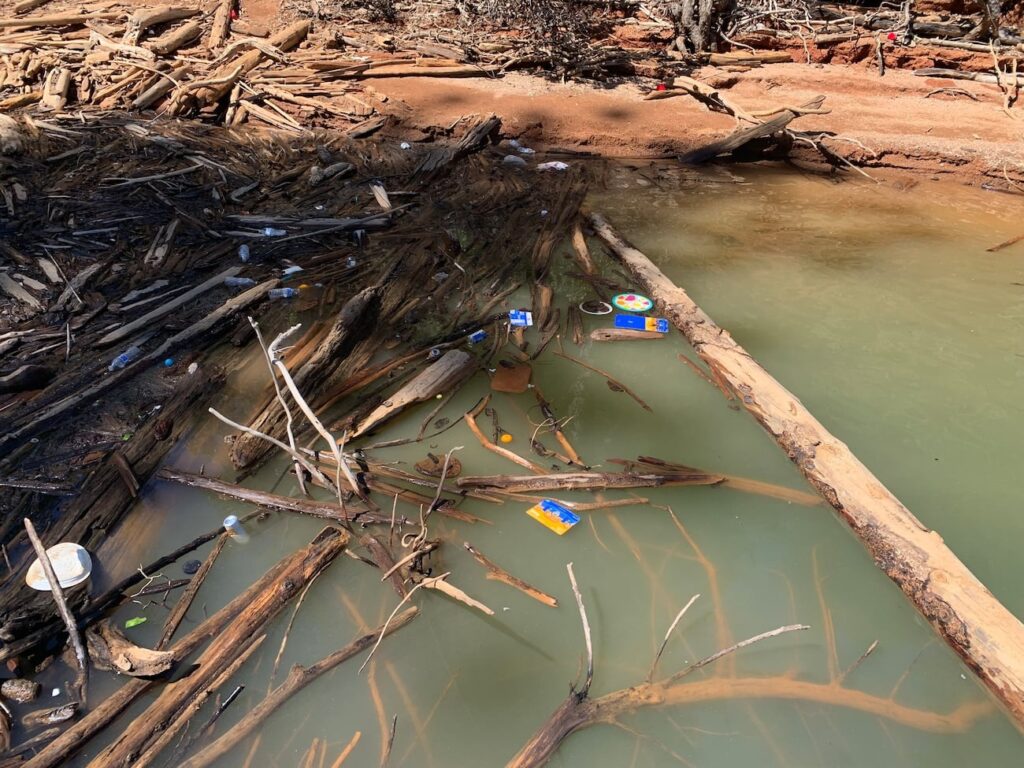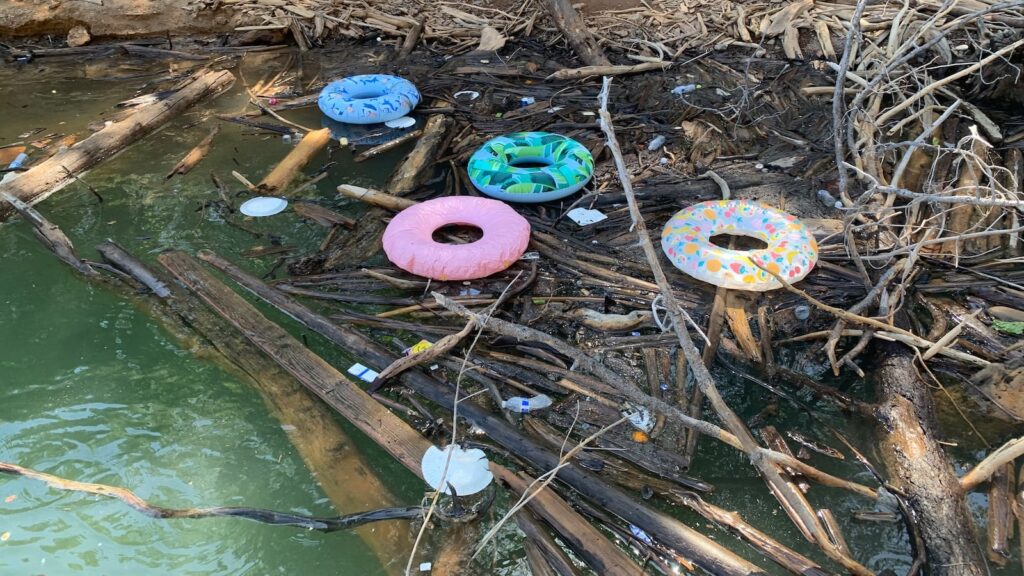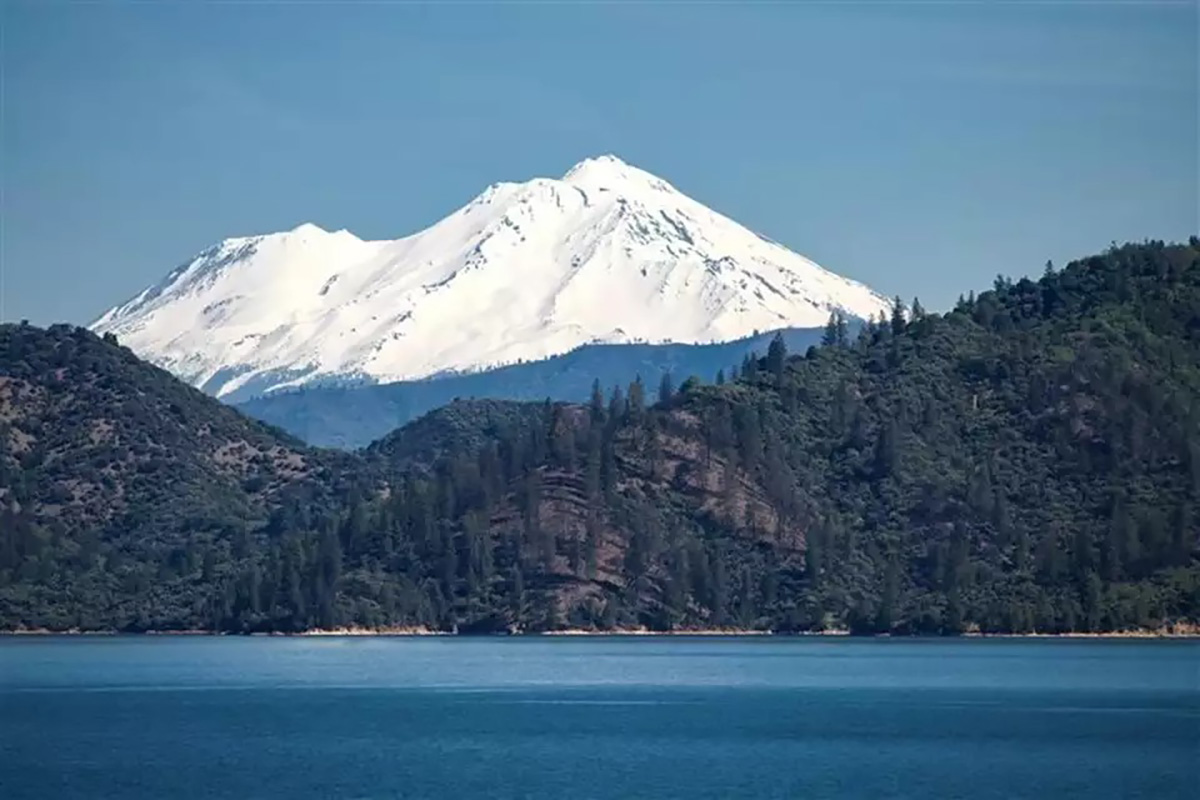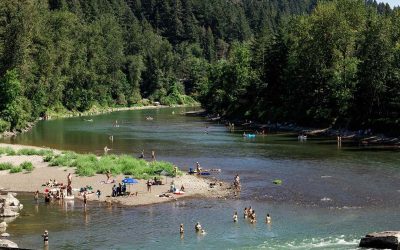As someone who cherishes the natural beauty of our world, I am deeply disturbed by the recent actions of students from the University of Oregon and UC Davis at Lake Shasta during Memorial Day Weekend. Being from Eugene, Oregon, it disheartens me to see that individuals from my own state, including students from the University of Oregon, could show such disregard for nature.
The serene Slaughterhouse Island, a treasure nestled in the vast waters of Lake Shasta, was left in a deplorable state. Despite clear instructions and assistance from forest rangers, who provided trash bags and guidance on 'leave no trace' ethics, the area was transformed into a dumping ground. "USFS employees provided the students with trash bags and coached them on leave no trace ethics," the Forest Service stated, underscoring their efforts to instill responsibility. Yet, the aftermath was a saddening sight: cups, bottles, cans, and plastic food wrappers submerged under the houseboats, betraying the trust placed in these young visitors to preserve our shared environment.

After everyone left, rangers had to spend six grueling hours collecting 17 bags of garbage, and more remains underwater, waiting to be retrieved once the water levels recede. "There is still more trash that will need to be collected once the water levels drop," the Forest Service reported, highlighting the ongoing impact of this negligence.
Adding to this, Debbie Carlisi, a recreation officer with the agency’s Shasta-Trinity National Forest division, shared further distressing details with SFGATE. A group of roughly 3,000 college students, a mix from UC Davis and the University of Oregon, were responsible for the destruction. They left behind an egregious amount of bottles, cups, wrappers, and cans, even going as far as to throw trash directly into the lake, despite being equipped with trash bags by forest service employees.

“The problem is there was a lot of stuff that was left in the lake,” Carlisi explained. “That's going to cause a problem with our fish and wildlife, and it decreases the recreation experience for our next visitors.” This wanton disregard for environmental ethics starkly contrasts with another group from Oregon State University, who, despite their numbers, left their campsite pristine, showcasing a commendable commitment to 'leave no trace' principles.
Carlisi’s disappointment was palpable as she pondered the lack of consideration shown by the students: “If you were bringing your family out here with you, would you want to find this mess when you were camping?” This rhetorical question underscores the selfishness exhibited by the students from UC Davis and the University of Oregon compared to their peers from Oregon State University, who stayed an extra day to clean up.
The Forest Service will now have to wait until late June or early July for the lake’s water level to recede to retrieve some of the submerged trash. Meanwhile, Carlisi stressed that the damaging weekend gathering was not sanctioned by either university and that the behavior should not reflect on the schools as a whole. “Private citizens rented houseboats and then they all gathered at one spot,” she clarified, indicating that the responsibility lies solely with the individuals involved, not the institutions they attend.
This negligence not only shows a blatant disrespect for nature but also burdens the forest service employees who work tirelessly to maintain the sanctity of these places. It's crucial to understand that places like Slaughterhouse Island aren't just spots for weekend getaways; they are precious ecosystems that need our protection and respect. "Upon future visits to public lands, we ask that the students the same we ask of all visitors, to leave the recreational areas in better condition to support the stewardship of the land for future generations," the Forest Service urged, emphasizing the importance of such stewardship.
Every visitor bears the responsibility to leave these places better than they found them, to ensure they remain pristine for future generations. We must all embrace and practice the principles of 'leave no trace' to safeguard the natural beauty that enriches our lives.













